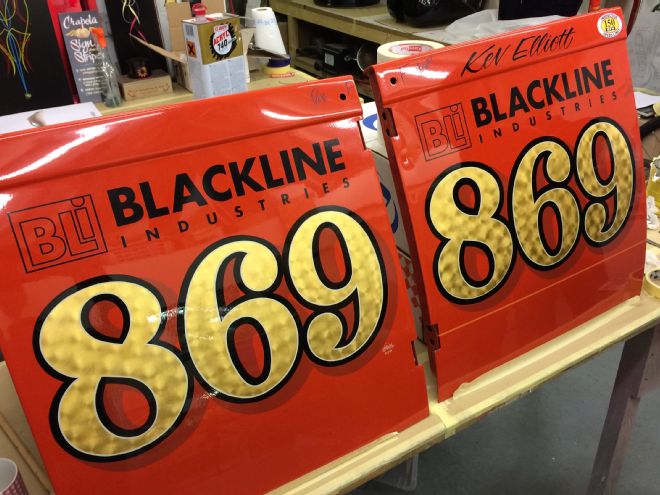
In my opinion every Bonneville or lakes race car should have gold leaf race numbers on the sides. It just looks "right." But just how is that "turned" gold leaf applied? With a race car needing numbers, I figured we'd find out. Now, having a bit of an OCD issue with symmetry, my personal pinstriper/signwriter of choice has for 30 years been my good friend Neil Melliard at Prosign, in London, England, where I grew up. Heck, I still have the sign from above my first shop door he lettered for me almost three decades ago!
So when it came to lettering my race car, there was only one person I wanted to do it. However, Neil is still in London, and I now live in SoCal, where I built the car. Neil was too busy to fly out to meet my deadline, so the only thing for it was for me to box up the doors and take them to him! Did I breathe a sigh of relief when I unpacked them back in California, as they'd still been tacky when I boxed them up in the chilly December London air? You betcha!
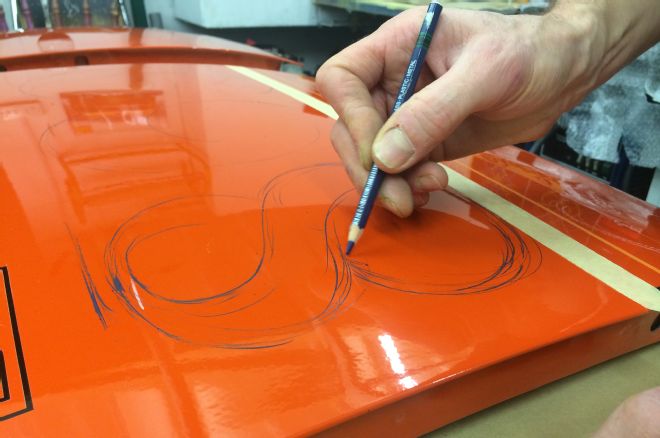
1 Using masking tape to denote the bottom of the numbers, Neil uses a waterbased pencil to freehand them onto the doors. Normally he has to do this with them vertical on a car.
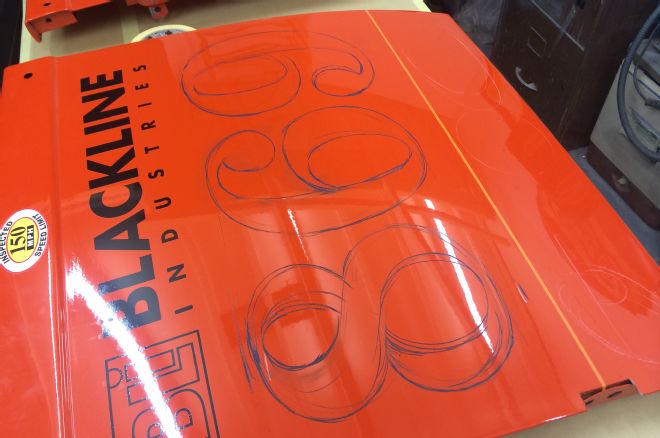
2 The numbers are roughed in (we'd already discussed the design/font) though the 6 and 9 aren't identical.
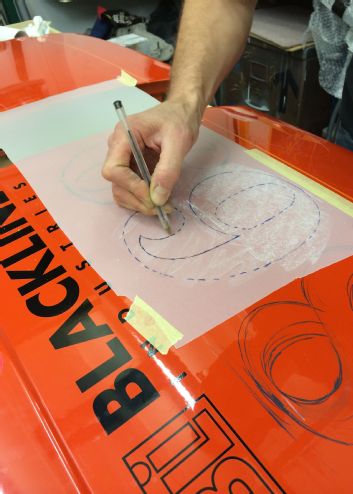
3 Neil traced the 6 and...
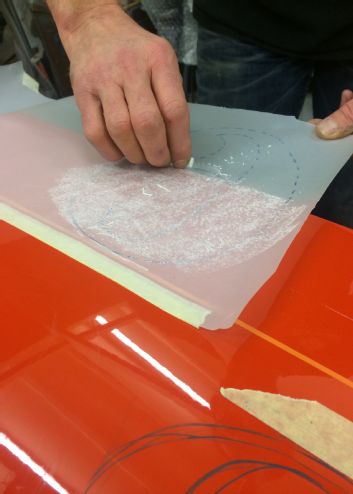
4...with chalk on the back of the paper...
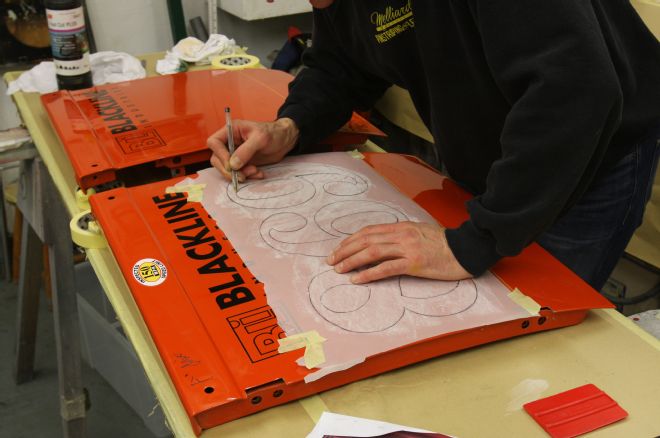
5...transferred the number onto the door, flipping it to form a 9.
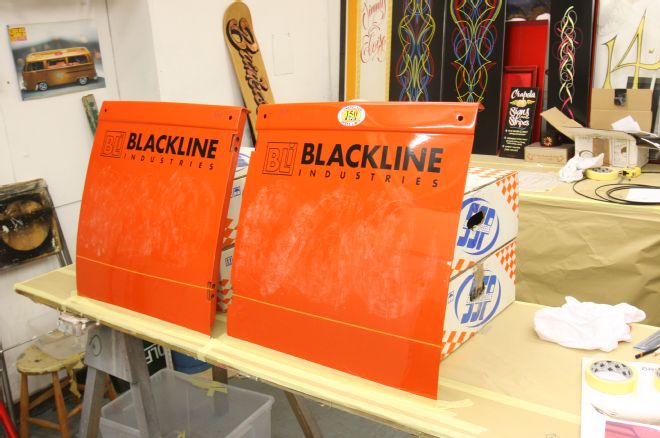
6 Hard to see, but the same method was used to transfer the numbers onto the other door. The pencil marks were then cleaned from the first, and the numbers traced back onto that one.
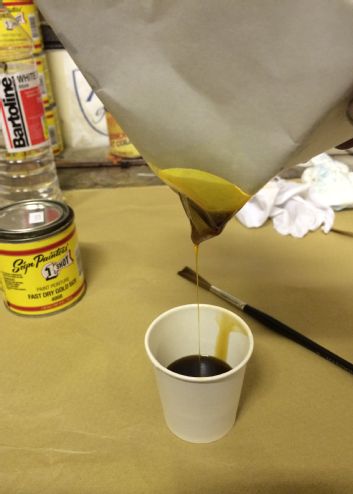
7 Gold leaf needs size for it to stick to the panel. Neil uses One Shot.
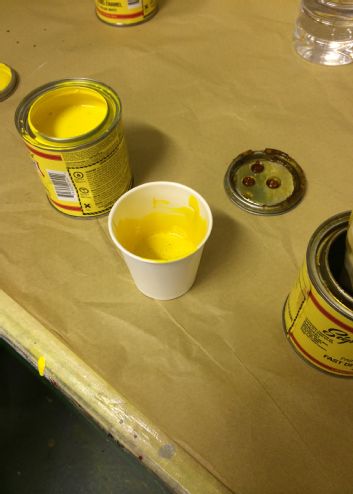
8 A little yellow was mixed with the size, mainly so it can be seen once applied.
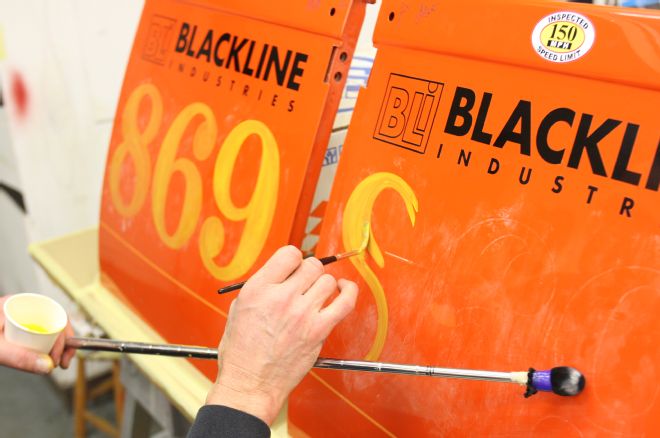
9 Using a rod to steady his hand, Neil fills in the outline of each number with size then lets it tack off. The chalk stops the gold leaf sticking to the panel, so is left for now. An AS Hanover sable chisel brush was used for this.
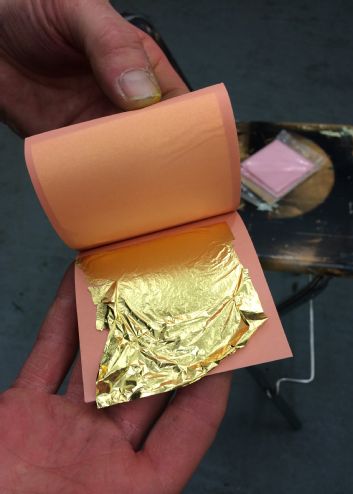
10 Gold leaf comes in books, with individual sheets on each page. This is real 23-karat gold leaf.
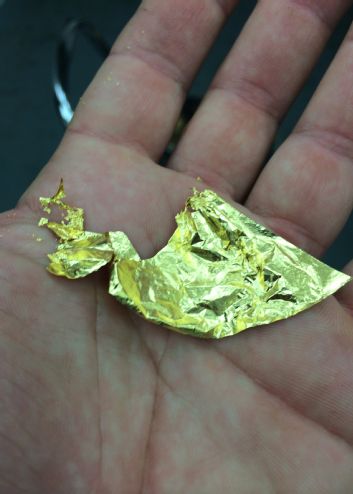
11 The leaf is super thin and flaky, and not cheap, so needs to be treated carefully.
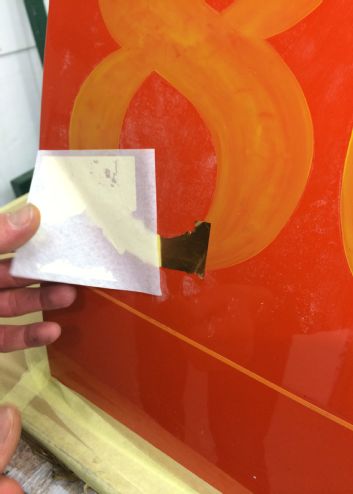
12 Neil applies the leaf. It sticks to the size and nowhere else.
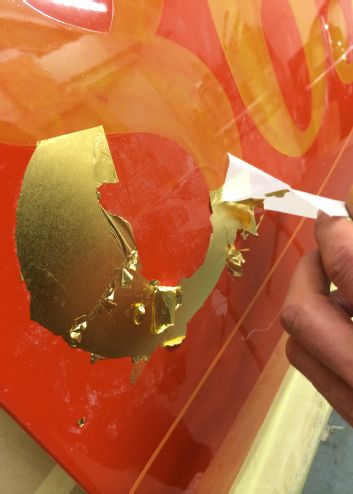
13 Several sheets are required for just one number, so it pays to plan and be economical, while ensuring full coverage.
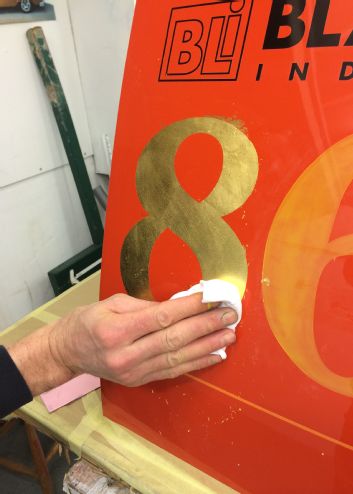
14 Once each number is covered fully, it's wiped with a clean, soft cloth to remove any excess.
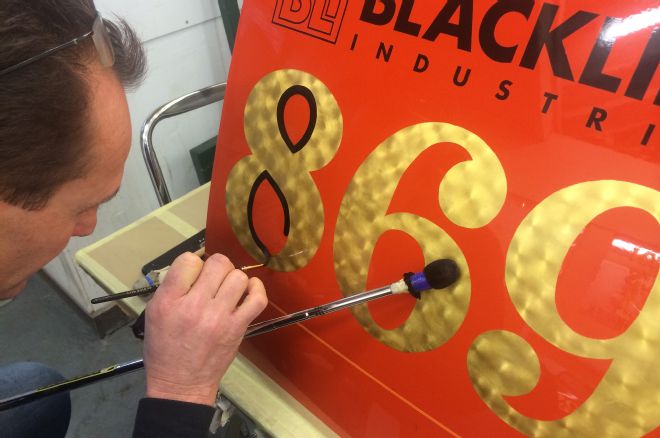
15 OK, so we've skipped an important step, where the leaf is "turned," but you can see how it's done in the accompanying video or on our Facebook page. With a piece of velvet, or similar, rolled into a ball, Neil simply lightly presses it onto the leaf and twists it. Of course, experience helps! He then outlines the numbers in black, again using a sable chisel brush.
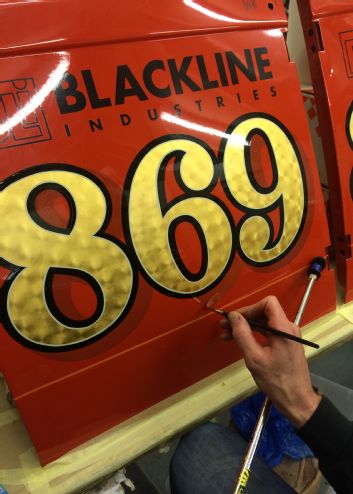
16 With the outline complete, and dry, Neil pinstripes around the gold with white, using a Mack "Virus" brush to make the numbers pop. He then adds a faint drop shadow to give the numbers depth.
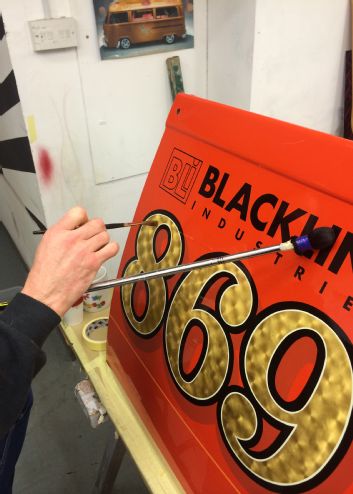
17 Once everything's dry, it's coated in One Shot varnish, which protects the gold leaf.
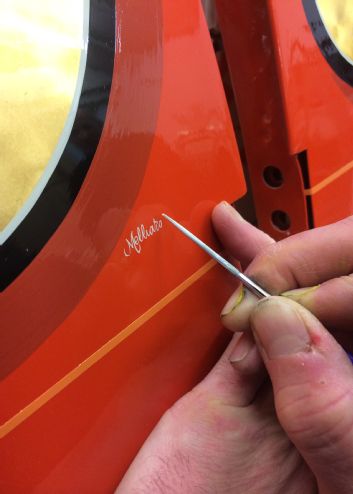
18 Finally, he signs his work. This gives an idea of how small the writing is.
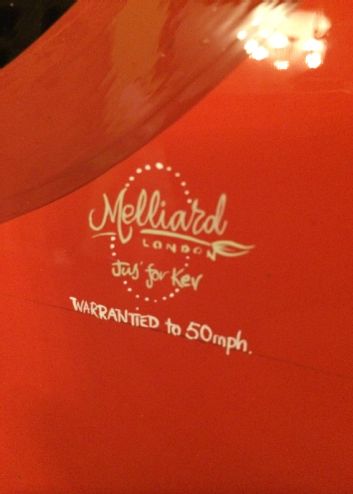
19 Yeah, yeah, funny guy!
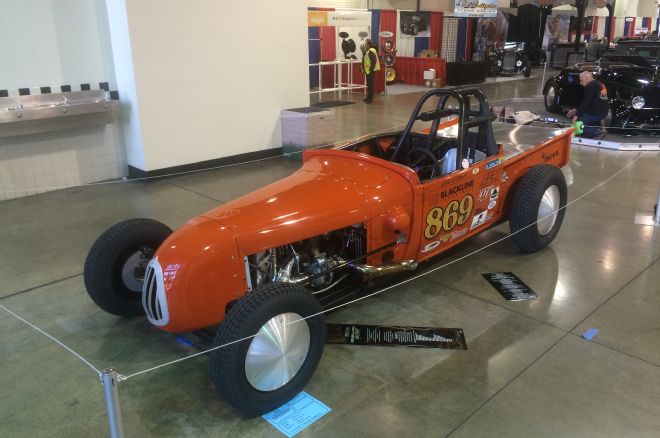
20 The reason for my deadline? The car was to be in the Grand National Roadster Show this past January, and I wanted the race numbers done for the show!